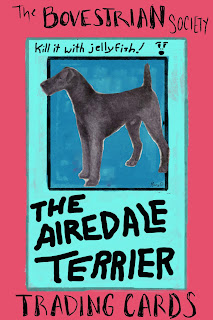"Our conversations were unnecessary for Dr. Mordhouse had arrived with a chocolate-backed book in his hand."-- The original "The Adventure of the Lion's Mane"
I, the host of a weekly podcast called "The Watsonian Weekly," felt betrayed this evening, but my podcast's very hero, John H. Watson, M. D.
The evening started innocently enough. It was our local Sherlockian's society's night to discuss one of the Casebook tale, "Lion's Mane," the one written by Holmes in his retirement. I picked up Les Klinger's original annotated work on the tale, as I tend to do on such nights. And the first footnote stopped me in my tracks. Before I knew it, I was skipping re-reading the actual story and just following the footnotes. Then when I got home, I swiftly ran to the shelves to see if I had it . . . and I did . . . the Sherlock Holmes Society of London Westminster Libraries reprint of the original manuscript. I had forgotten.
I had forgotten so much.
Lately I had been studying Pope Hill Sr.'s works and his theory that there was a secret story behind every one of the sixty published stories of Sherlock Holmes, a very far-fetched notion, I thought. But here . . . HERE . . . was evidence that in at least one case, that wacky genius was absolutely right. There was another story layered underneath the first. And as to why it's there, well, that makes perfect sense too.
Dr. Watson pulled some real shyte on this one.
So, let's start with the fact that this is a story written by Sherlock Holmes. What's Sherlock Holmes do with his two attempts at writing up his Watson-less cases? He passes them along through the usual channels that Watson would -- Watson's literary agent, who dutifully hand copied Holmes's text to tidy it up a bit. And then, of course, said agent would have to show it to Watson.
And suddenly we see large areas of crossed-out material in this tale, much more than in anything created by Watson. What's the first cross-out? Sherlock Holmes writing about Watson: "It is possible that he would in any case have rejected this case from his records for in his loyalty he would always dwell upon my successes."
Watson would have rejected this case, Holmes tells us, and Watson immediately rejects those very words. Why? "He would always dwell upon my successes." And Sherlock Holmes does not succeed in the original telling of this tale by the man himself. Who does succeed?
Dr. Mordhouse.
Ever hear that name before, in the actual Watson-approved Canon? Of course not. Because if you think "cancel culture" is bad now, look at Watson did to his fellow medical man, the naturalist Dr. Mordhouse. Watson erased him from our history of Sherlock Holmes, so much so, that if Doyle hadn't kept the original transcriptions of the case, complete with cross-outs, we would never know Dr. Mordhouse at all.
"Watson had passed beyond my ken," Holmes writes in the start of the story. Not much later he pens the words, "he was the one man who was on such terms with me that we could drop in on each other in the evenings without an invitation." The one man. One. And Holmes is not talking about Watson, whom he wrote in the other Holmes-penned tale, "had deserted me."
And what did John H. Watson never do in all his years of partnership with Sherlock Holmes?
Get to solve a case.
And here, after they're apart, barely seeing each other for the occasional dutiful weekend visit, Sherlock sends Conan Doyle the second tale he would ever write of life on his own, and it's all about another doctor besides Watson solving the mystery.
It's Dr. Mordhouse who shows up with J. G. Woods's book Out of Doors to explain what a cyanea capillata is. It's Dr. Mordhouse about whom the inspector asks Sherlock Holmes, "Have you heard the Doctor about that?" because Mordhouse says the victims wounds were not caused by a whip. And in the end, it's Dr. Mordhouse who does all the explaining.
"Here is the book, Mr. Holmes." But that name is crossed out and replaced with "Inspector."
Holmes told us (and Watson) at the start that Watson would have rejected this case because it wasn't one of his successes, just daring the good doctor to reject it. Watson, however, being a man of the pawkiest of humor and possessing a certain cleverness of his own, didn't take that bait. Instead, he made it one of Holmes's successes, and published away, rubbing Holmes's nose in it.
"The relations between us in those latter days were peculiar," Watson wrote in "Creeping Man." Indeed they were. And in the middle of those seemingly contentious relations was one man who got erased from Sherlockian history as collateral damage: Dr. Mordhouse.
"Doctor WHO?" you might ask.
"Don't go there," I will reply. "Mordhouse was his name. Remember it."











